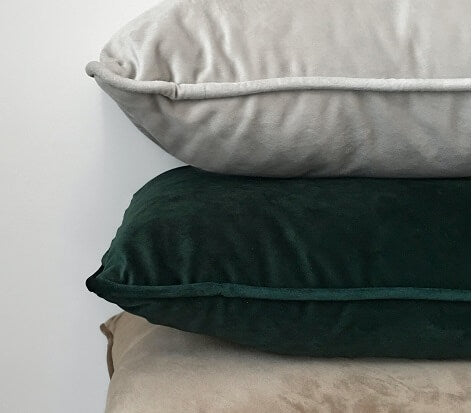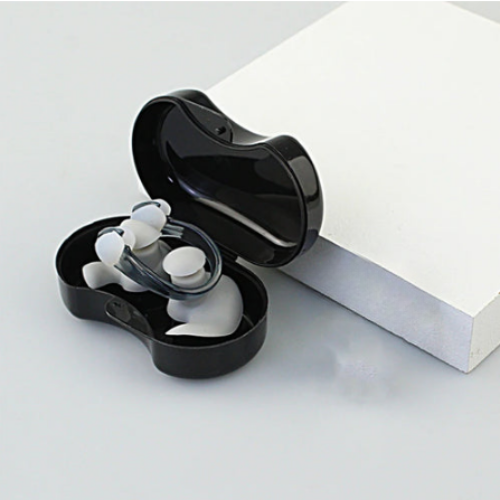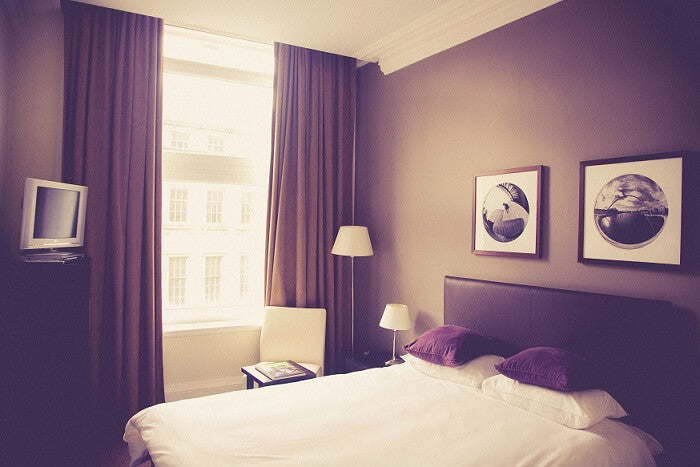Are you struggling to get a good night's sleep? Do you find yourself tossing and turning, unable to quiet your mind and drift off into dreamland? If so, you may want to consider incorporating white noise into your sleep routine. White noise has been shown to have a variety of benefits when it comes to improving sleep quality and helping individuals achieve a more restful night's sleep. In this blog post, we will explore the surprising benefits of white noise and how it can help you sleep soundly night after night.

What Exactly is White Noise and How Does it Work?
White noise is often likened to the sound of a steady, unchanging rush, similar to that of a running fan or a distant waterfall. This unique form of sound encompasses all audible frequencies at an equal intensity, creating a kind of sonic blanket that envelops the listener. The science behind white noise lies in its ability to create a uniform auditory environment. Unlike specific music tracks or ambient sounds which can vary in volume and pitch, white noise maintains a constant level of sound across all frequencies that the human ear can hear.
This uniformity is what makes white noise so effective for sleep. In an environment where unexpected or varying noises are common – be it from city traffic, an erratic storm, or the unpredictable sounds of a house settling – white noise acts as a protective barrier. It blends these external noises into its homogeneous flow, making them less noticeable or jarring to a person trying to fall asleep. The psychology of white noise taps into our brain's ability to tune into consistency. Just as our minds can wander when in a silent room, so too can they relax and disengage when presented with the constancy of white noise. It's this blend of auditory masking and psychological soothing that positions white noise as a powerful tool for enhancing sleep quality, allowing for a tranquil escape into sleep without the disruption of external sound interference.
The Impact of White Noise on Sleep Quality
The effectiveness of white noise in enhancing sleep quality cannot be overstated. Research underscores its role in not only facilitating quicker sleep onset but also in promoting deeper, more consistent sleep cycles. The presence of white noise in the sleeping environment acts as an acoustic shield, buffering the sleeper from disruptive sounds that might otherwise interrupt the natural progression of sleep stages. This continuity is critical for achieving restorative sleep, which is essential for cognitive function, mood regulation, and overall health.
An interesting facet of white noise's impact on sleep is its potential to improve the quality of sleep in various environments, from the noise-polluted urban setting to the quieter, but sometimes equally disruptive, suburban areas. Its uniform sound landscape is adept at minimizing the cognitive disruptions caused by sporadic or sudden noises - be it a car alarm, a barking dog, or even the sudden silence that can jar one from sleep.
Moreover, the consistent background hum provided by white noise has been linked with the reduction of sleep latency, the time it takes to fall asleep. This can be particularly beneficial for those who find their minds racing or are prone to anxiety at bedtime. The gentle, steady sound facilitates a shift in focus, away from the stresses of the day or the anticipation of tomorrow, towards relaxation and the embrace of sleep. Through its multifaceted role in sleep enhancement, white noise emerges as a simple yet profound tool in the pursuit of higher-quality sleep.
White Noise and Its Role in Falling Asleep Faster
One of the remarkable benefits of white noise is its capability to significantly reduce the time it takes for individuals to fall asleep. The gentle, consistent sound of white noise provides a comforting background noise that drowns out the day's cacophony, allowing the mind to transition from a state of alertness to one of calm more effortlessly. This transition is facilitated by the steady auditory environment that white noise creates, offering a sense of predictability and safety that is conducive to falling asleep. For those who often find themselves preoccupied with thoughts or worries at bedtime, white noise serves as a distraction, diverting attention away from stressful or stimulating thoughts towards a state of mental relaxation. The simplicity of its sound invites the mind to let go of the day's tensions and ease into the first stages of sleep with less effort. Furthermore, the effectiveness of white noise in creating an ideal environment for sleep is supported by its ability to blend seamlessly with the natural rhythm of the night, providing a subtle yet effective backdrop that encourages quicker sleep onset. Whether it's the whisper of a fan or the soft hum of a dedicated white noise machine, finding the right white noise sound can be a key element in reducing bedtime anxiety and fostering a quicker transition to sleep, making it an invaluable tool for anyone looking to improve their sleep latency and overall sleep hygiene.

How White Noise Can Help You Stay Asleep Longer
White noise's consistent auditory presence is a key factor in extending the duration of uninterrupted sleep. By establishing a sound environment that masks the disruptive effects of external noises, such as a neighbor’s late-night activities or the early morning sounds of traffic, it ensures that these potential disturbances do not impact your sleep cycles. The even, steady backdrop provided by white noise essentially forms a sound cushion that helps to maintain the depth of sleep. This cocoon of sound significantly reduces the chances of waking up after initially falling asleep, thereby increasing the overall time spent in the deeper, more restorative phases of sleep.
For individuals living in areas where night-time noise is unpredictable, the advantage of white noise becomes particularly evident. It acts as a constant, predictable layer of sound, in contrast to the fluctuating nature of most external noises. This predictability allows the brain to adapt to the white noise, tuning out minor disruptions that might otherwise lead to frequent awakenings.
Moreover, the use of white noise can be beneficial for light sleepers who are easily disturbed by changes in their auditory environment. By smoothing over these changes, white noise helps to sustain a state of rest, making it less likely for slight noises to cause wakefulness. This benefit is crucial for achieving a night of long, uninterrupted sleep, which is vital for physical health and mental well-being.
Choosing the Right White Noise for You
Navigating the world of white noise can be a personal journey, as the ideal sound varies significantly from one person to another. Among the array of white noise options, you'll find an eclectic mix—from the monotonous hum of static noise to the more dynamic and soothing sounds of nature, such as rain pattering on a rooftop, the gentle roar of ocean waves, or the calming rustle of leaves in a gentle breeze. Exploring these options is key to unlocking the full benefits of a white noise machine, as your selection should resonate with your personal comfort and relaxation needs, ultimately helping you discover what best facilitates your journey to restful sleep.
Many find that specific white noise sounds trigger deeper emotional relaxation than others, which can be pivotal in setting the right sleep environment. For instance, someone who grew up near the coast may find ocean sounds more comforting than the artificial buzz of a machine. In contrast, others might prefer the undistracted simplicity of static white noise for its lack of identifiable patterns, allowing for a smoother mental disengagement from the day's activities.
To refine your choice, consider experimenting with different white noise variations at bedtime. This exploration can be an enlightening process, guiding you towards the sound that not only masks disruptive external noises but also psychologically comforts you, creating the perfect sanctuary for sleep. Remember, the effectiveness of white noise is as much about personal resonance with the sound as it is about its ability to blanket external disturbances.
Integrating White Noise into Your Sleep Routine
Embracing white noise as part of your bedtime ritual can be a transformative step towards enhanced sleep quality. There are various ways to introduce this soothing sound landscape into your nightly routine. One effective method is purchasing a white noise machine, crafted to emit a range of sounds tailored to promote sleep. Alternatively, household items such as fans or air purifiers can also serve a dual purpose, offering both air circulation and a consistent auditory backdrop. For a more modern approach, numerous apps and online platforms provide a wide array of white noise options, from natural soundscapes to synthetic hums, all accessible from your smartphone or tablet. Experimentation is key; try different sources and sounds to pinpoint what most effectively lulls you into a state of relaxation. By integrating white noise into your nightly habits, you may find it becomes an indispensable part of your sleep hygiene, paving the way for deeper, more uninterrupted rest.
FAQ
1. What are the benefits of white noise?
What are the benefits of white noise? White noise can help improve focus, reduce stress, support better sleep, enhance memory retention, and even promote faster learning.
2. Why is white noise so satisfying?
Our brains are keyed in to attend specifically to sharp changes in the environment because those are the threats," he said. "So what sound masking does, it introduces a broad, calm, consistent, a bit gentle (sound) in the background that can make it so you can't quite pick out those noises that are still there."
3. What is the science behind white noise?
White noise refers to a noise that contains all frequencies across the spectrum of audible sound in equal measure. Because white noise spans multiple bands of sound, it is sometimes referred to as broadband noise. Anecdotally, people often liken white noise to the static that comes from an untuned radio or television.
What to read next

The Mysterious Connection Between Baby Smiles and Angelic Encounters

Unveiling the Percentage of Sleep Apnea Cases Leading to Disability

The Pros and Cons of Sleeping with a Weighted Blanket: Do They Sleep Hot or Not?
What to buy

Portable White Noise Baby Soother – Sleep Magic, Pocket-Sized
Summer Swimming Earplugs/Nose Clip Set








